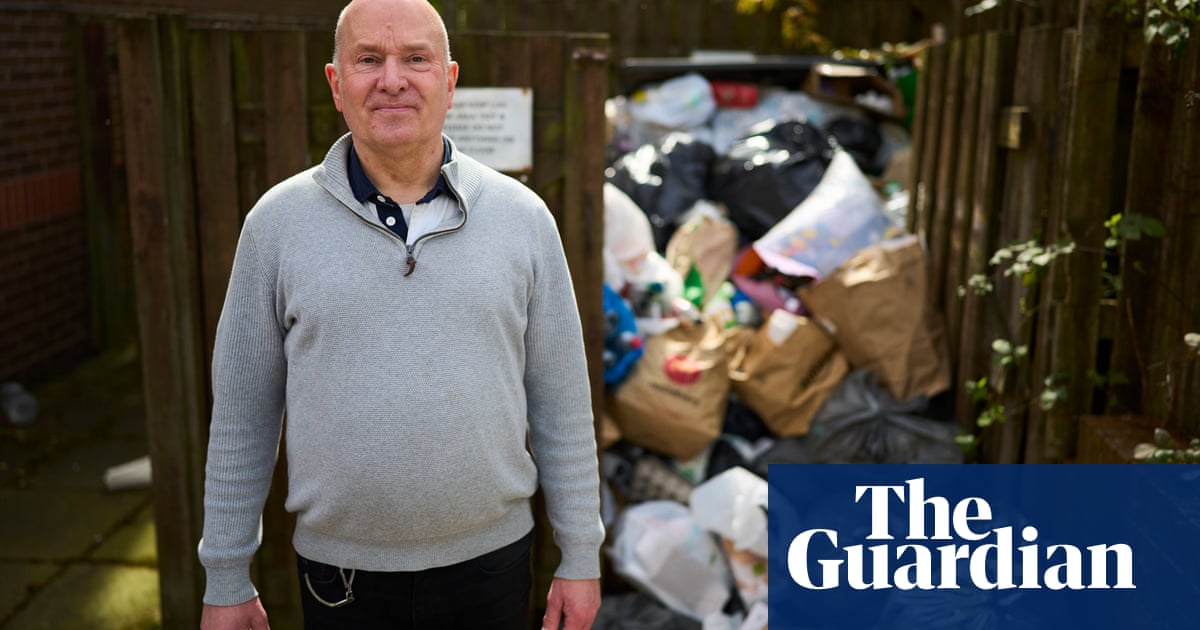Key events Show key events only Please turn on JavaScript to use this feature
Trump signs executive order on water pressure to ‘restore shower freedom’
A global trade-war rollercoaster was not enough to distract Donald Trump from fulfilling one of his longtime priorities on Wednesday: changing the federal definition of “shower head”, a move the White House said would “end the Obama-Biden war on water pressure”.
Trump has complained for years about inadequate water pressure in American showers, sinks and toilets, and has blamed federal water-conservation standards for the problem.
“In my case, I like to take a nice shower to take care of my beautiful hair,” Trump said as he signed the executive order, which the White House said would apply to multiple household appliances, including toilets and sinks. “I have to stand under the shower for 15 minutes until it gets wet. It comes out drip, drip, drip. It’s ridiculous.”
The White House said in a statement on the executive order: “By restoring shower freedom, President Trump is following through on his commitment to dismantle unnecessary regulations and put Americans first.”
Some appliance experts have found Trump’s continued focus on American water pressure notable.
“It was very striking that the White House memo included toilets and shower heads as a presidential priority. It really was something,” Andrew deLaski, executive director at the Appliance Standards Awareness Project, told the Guardian in January. “But I think Donald Trump’s concerns are somewhat out of date, to tell you the truth.”
Trump signs executive order seeking to revitalize US shipbuilding
Good morning and welcome to the US politics blog. I’m Tom Ambrose and I’ll be bringing you all the latest news over the next few hours.
We start with news that president Donald Trump signed an executive order on Wednesday aimed at reviving US shipbuilding and reducing China’s grip on the global shipping industry.
Republican and Democratic US lawmakers for years have warned about China’s growing dominance on the seas and diminishing US naval readiness, AP reports.
Senators Mark Kelly, a Democrat, and Todd Young, a Republican, welcomed the executive order and said they would reintroduce their bipartisan legislation to provide the congressional authorizations needed to revitalize the industry.
The order directs the US Trade Representative (USTR) to move ahead with a proposal that included levying million-dollar US port docking fees on any ship that is part of a fleet that includes Chinese-built or Chinese-flagged vessels. Allies will be pushed to act similarly.
USTR’s recommended port fees had sparked sharp criticism from commodities exporters, trade groups and US ship operators, who warned of supply chain disruptions, job losses in port cities and inflation. The order must be finalized by an 17 April deadline.
In other news:
-
Donald Trump has backed down on tariffs on most countries for 90 days, applying instead a 10% tariff, effective immediately. In an announcement that made no mention of several days of market meltdown, rising US inflation fears and fears of a global recession resulting from his tariff policies, Trump insisted his decision was based on the fact that more than 75 countries had approached the US to negotiate on tariffs and non-monetary tariffs rather than retaliate (he was less diplomatic in his description of conciliatory nations last night). Mexico and Canada are included in the 10% baseline tariffs, US treasury secretary Scott Bessent said.
-
Democratic governors hit back at a Trump order blocking state climate policies. Kathy Hochul and Michelle Lujan Grisham, the governors of New York and New Mexico respectively and who co-chair the US Climate Alliance, wrote: “The federal government cannot unilaterally strip states’ independent constitutional authority.” They vowed to continue “advancing solutions to the climate crisis”. Last night Trump issued an executive order that aims to block the enforcement of state laws passed to reduce the use of fossil fuels and combat the climate crisis. It came just hours after Trump issued orders to increase coal production. The order named California, New York and Vermont as specific targets, while also listing a broad range of state policies that the administration would seek to nullify, from cap-and-trade systems to permitting rules.
-
The Trump administration intends to appeal a judge’s ruling lifting access restrictions on the Associated Press, a court filing seen by Reuters showed. The US district judge Trevor McFadden ordered the White House to restore full access to the Associated Press to presidential events, after the news agency was punished for its decision to continue to refer to the Gulf of Mexico in its coverage.
-
Federal judges in New York and Texas have taken legal action to block the government from deporting five Venezuelans under the rarely invoked Alien Enemies Act that gives the president the power to imprison and deport non-citizens in times of war.
-
A Democratic senator has introduced a bill that would prohibit awarding government contracts and grants to companies owned by special government employees, taking aim at Elon Musk, the SpaceX and Tesla CEO.

.png) 1 week ago
11
1 week ago
11













































